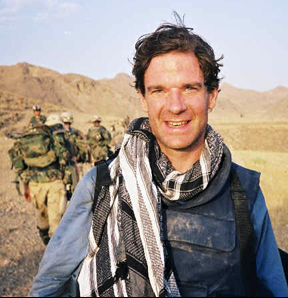William Bradley has an interesting post on Huffington Post, Barack Obama’s War: 10 Key Things To Know. Bradley welcomes visitors to his website. Here are excerpted points I got from the article.
- Along with NATO, we already have as many troops in Afghanistan as the Soviets did in the 1980s. With Obama’s newest escalation, we will have more troops than the Soviets had in Afghanistan.
- The Soviets were winning their war in Afghanistan. Before we intervened with massive covert funding and weapons.
- The Soviet Afghan War was won with only a handful of Americans in Afghanistan. Defeating the Soviets in Afghanistan — in effect, making Afghanistan the Soviet Vietnam — was key to ending the Cold War and bringing down the Soviet Union. There were virtually no Americans on the ground in Afghanistan.
- Totally ignoring Afghanistan after the defeat of the Soviets and the end of the Cold War created a vacuum which, after years of infighting, was finally filled by a new and even more radical group, the Taliban (fundamentalist religious students). A case of penny-wise, pound-foolish, typical of America’s lack of historical perspective.
- The post-9/11 Afghan War was won with only a few hundred Americans in Afghanistan. A relative handful of Intelligence agents and special forces operators utilized air power and worked with Afghan forces opposed to the ruling Taliban to chase Al Qaeda out of Afghanistan and to bring down the Taliban government when it would not serve up Osama bin Laden,
- The epic fail of Tora Bora echoes very loudly today. We might not be talking much about Al Qaeda, a diminished force, were it not for the incredible failure to capture or kill Osama bin Laden…. Read the new Senate report on this, and weep. The Bush/Cheney Administration turned down repeated requests, saying it didn’t want a heavy foreign presence on the ground, so he was allowed to slip away.
- Bill Clinton was criticized for failing to destroy the Al Qaeda training and operational bases in Afghanistan with cruise missiles in the late 1990s. Instead, it was said that he should have used special operations forces to wreck the Al Qaeda operation. Notice that no one seriously suggested that he launch a full-scale invasion to accomplish this. It wasn’t necessary for the mission. Why we have to control Afghanistan now to stop Al Qaeda from using it as its base of operations is a bit of a mystery, as we can readily smash any such bases in Afghanistan.
- Barack Obama ran for president on a program of escalating the war in Afghanistan. He was very clear about this. The fact that he is now doing what he said he would do when he ran for president should be no surprise to people who supported him. Or to those who did not.
- American escalation in Afghanistan may push more jihadists into Pakistan, risking destabilization, as Pakistan’s leaders have pointed out. They are noncommittal so far about the new Obama strategy in Afghanistan. And, though they’ve pushed back hard against local Taliban threatening their own rule, they haven’t been so supportive of efforts against other jihadists.
- Is defeat in Afghanistan inevitable? No….The answer really depends on how you define success. Is it likely that Afghanistan is going to be built into a truly functioning nation-state any time soon? No…. Can we deny Afghanistan as a base for “The Base,” Al Qaeda? Yes. But we’ve been able to do that for the past eight years, with no escalation necessary.
- A lot of things have to go right for this very ambitious plan, which sounds a great deal like Vietnamization, which worked wonders for Richard Nixon, to work. But you can bet that Obama wants most American troops out of Afghanistan by the time of his reelection.























